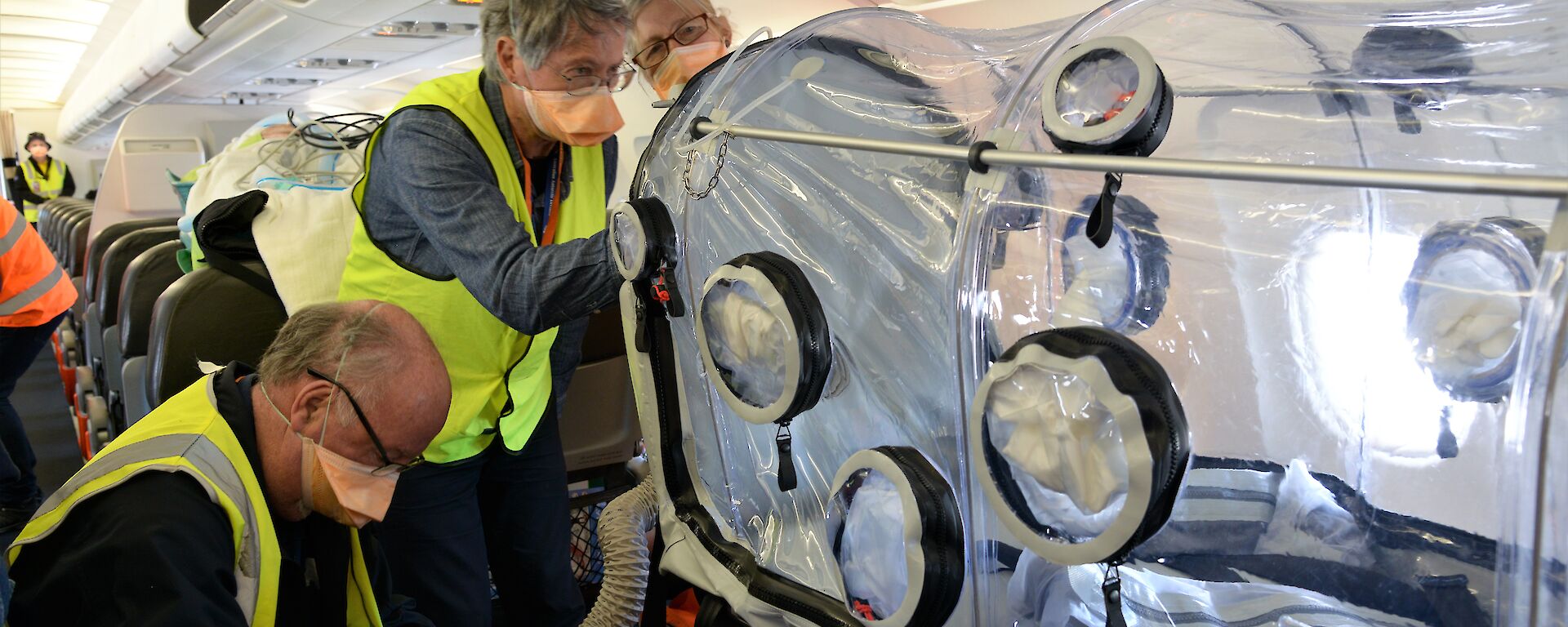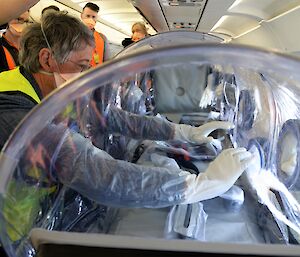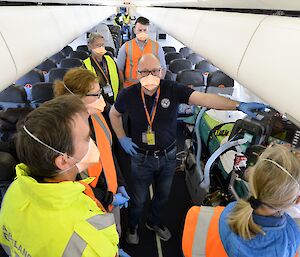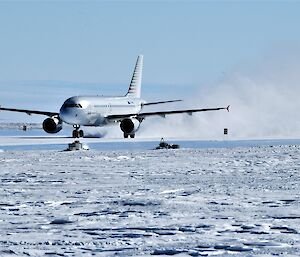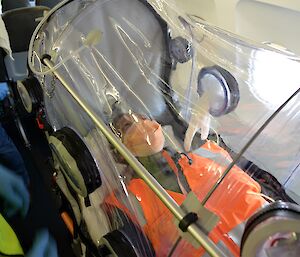Dr Roland Watzl, deputy chief medical officer at the AAD, said “as best we know, there’s no COVID-19 in Antarctica and the mission is to keep it out of Antarctica.”
“We always plan for the worst and hope for the best, in case it does end up down there,” Dr Watzl said.
Prior to the first flight of every Antarctic season, the AAD trains with a team of retrieval specialists from the Royal Hobart Hospital and Ambulance Tasmania to prepare equipment and practice ‘medevac’ procedures for aeromedical retrieval.
This year for the first time, a portable isolation chamber and an intensive care module are being deployed on the Division’s chartered Airbus A319.
The isolation chamber is designed to safely transport a COVID-19 patient in different vehicles without infecting others.
“We’re putting very strong measures in place to actually do everything possible to prevent our teams from getting infected, should we have to deal with a case,” he said.
“That’s a really tough thing to do when you’re in a retrieval scenario because it’s not just what happens on the plane, we actually have to get the patient from the station up to the aerodrome, so there’s a couple of hours driving in the back of a tracked snow vehicle, called a Hägglunds.”
The chamber’s exhaust air is filtered to protect the medical team. Negative pressure in the chamber prevents virus particles escaping.
“The intensive care module basically allows us to care for a patient on full life support for the duration of the 4.5 hour flight, plus the extra time that you spend on the ground getting the patient on the aircraft and prepping the patient,” said Dr Watzl.
Dr John Cherry will be the station doctor at Davis research station for the coming year, and was part of the training exercise with the isolation chamber and aeromedical evacuation.
“Very few health or retrieval services in the world would have access to the technology that we’ve got, and I think that’s testament to the work of the Polar Medicine Unit,” Dr Cherry said.
“To bring together such a complicated suite of resources, and bring them together into one health system to look after a patient with suspected or confirmed COVID-19, really is a testament to the professionalism of the Antarctic Division.”
“To squeeze all this equipment into a plane and bring a patient back from the ice, that’s the reality we hope we don’t have to face, but we’re ready for it if we do,” he said.
The Australian Antarctic Program draws on the expertise of the Centre for Antarctic, Remote and Maritime Medicine (CARMM), a centre of excellence based in Hobart, for comprehensive medical services and support.

